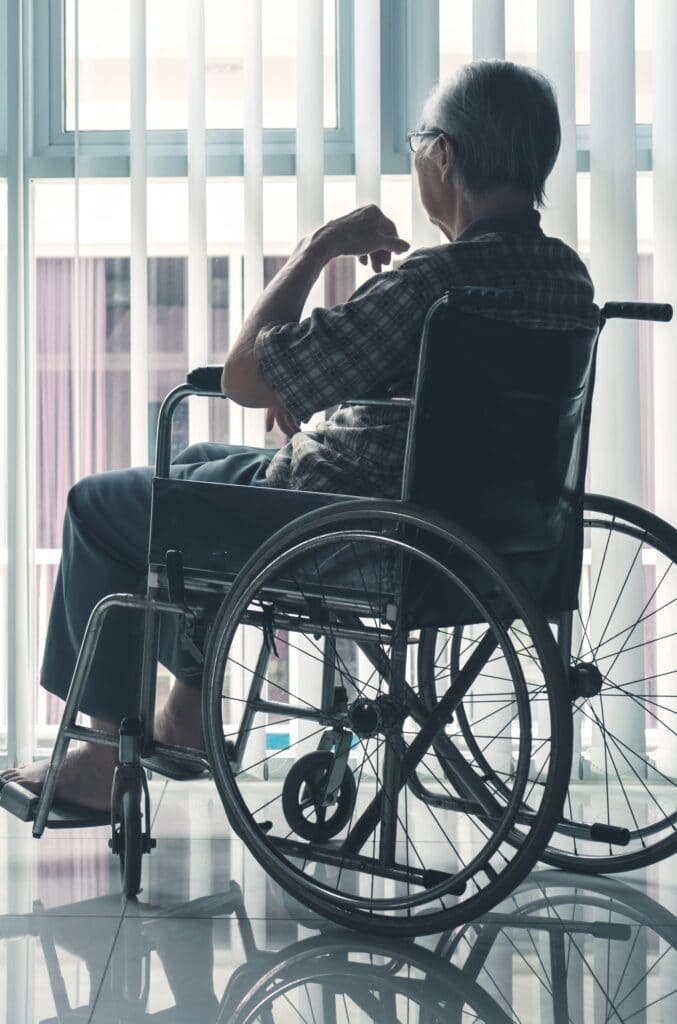Elder Abuse: Recognizing the signs and protecting the vulnerable.
Common Types of Elder Abuse
Neglect and Abuse
Negligent elderly care can take the form of neglect; unsafe premises; lack of supervision; untrained staff; or the lack of appropriate response systems.
It can also include physical, sexual, or emotional abuse.
Financial Abuse and Exploitation
Financial abuse occurs when a person or persons exploit the assets of another. The victims of financial abuse may be physically impaired, socially living alone, or have declining cognitive facilities.
Financial abuse takes many forms, but can include:
- Fraudulent schemes
- Use of undue influence to change a will
- Inappropriate use of power of attorney
- Exerting pressure to invest
- Using real or personal property without permission
- Making false or dishonest statements to obtain funds, make purchases, or sign documents.

Quick FAQs
Abuse is an action or deliberate behaviour by a person in a position of trust – such as an adult child, family member, friend, or caregiver – that causes physical, emotional, or mental harm to an individual or damage to, or loss of, assets or property.
Abuse can include threats, intimidation, humiliation, physical assault, sexual assault, withholding medication or over/under medicating, censoring mail, and denying access to visitors.
It’s important to understand the different types of abuse so that you can recognize the signs.
Physical Abuse
Physical abuse is a deliberate act of violence, physical force, or rough treatment causing injury or physical discomfort.
Someone who is being physically abused may not show signs of it.
Signs or symptoms may include: cuts, bruises, burns, grip marks, black eyes, unusual pattern or location of injury. Other signs that are not so easy to identify include fearfulness, depression, anxiety, withdrawal from social contact and regular activities.
Emotional or Psychological Abuse
Emotional abuse is any act that diminishes a person’s sense of identity, dignity, and self-worth. This can include when a person is verbally assaulted, insulted, yelled at, threatened, or humiliated by someone close to them or by a caregiver. The abuser may confine or isolate a person and prevent them from having visits from friends and family or deny them the chance to attend doctor or other personal care appointments. Signs may include depression, fear, anxiety, or behavioural changes when a caregiver enters or leaves a room.
Sexual Abuse
Sexual abuse involves any sexual behaviour directed towards another person without that person’s knowledge and consent. For example, sexual assault, sexual harrasement, or use of pornography. Signs and symptoms of sexual abuse may include pain, itching, or bruises around breasts or genital area, sexually transmitted diseases, depression, fear, anxiety, or withdrawal from regular activities.
Financial Abuse
Financial abuse involves the improper, illegal, or unauthorized use of an adult’s resources for the benefit of another. In the case of a senior who is not competent, it would mean not representing or acting in that person’s best interest. Signs and symptoms include unpaid bills; no money for food, clothing, or medication; unexplained withdrawal of money from someone’s bank account; representative or family member refusing to spend month on the person’s behalf; missing possessions; someone forces an person to sign over Power of Attorney against their own will.
Medication Abuse
This involves the misuse of a person’s medication and prescriptions, including withholding medication and over-medication.
Neglect and Self-Neglect
Neglect is the intentional withholding of basic necessities of care such as good, clothing, shelter, bathing, medication, health care, and doctor visits. Self-neglect happens when an adult can no longer take care of their own basic daily living needs and may lead to unsanitary or unsafe surroundings that can cause illness or injury. Signs and symptoms may include malnourishment, dehydration, confusion, inappropriate clothing, poor hygiene, and absence of required aids such as a cane or walker.
If it is an emergency situation call 9-1-1 to get help immediately.
Otherwise, the Seniors Abuse and Information Line (SAIL) is a confidential toll-free information line for older adults and those who care about them to speak to a trained intake worker about abuse, mistreatment, and any issues that impact the health and well-being of an older adult.
SAIL is available weekdays 8 am to 8 pm and weekends 10 am to 5:30 pm, excluding statutory holidays.
If you are calling SAIL from the Greater Vancouver Area, call 604-437-1940. For callers located in the rest of BC, Canada, or North America, call toll-free at 1-866-437-1940.
- callers will have to press “1” to be connected to an Intake Worker
- callers have an option to press “2” to leave a voicemail message to receive a callback
- calls will be returned from a private number unless otherwise specified
Language Interpretation is available 9am to 4pm, Monday to Friday
- Talk to an Elder Abuse lawyer for free.